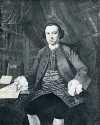
Source: The Free Dictionary

Source: The Free Dictionary
 The Little Mermaid is a fairy tale by the Danish author Hans Christian Andersen about a young mermaid who is willing to give up everything to gain the love of a prince and an eternal soul. The story has been adapted into numerous films, TV series, an opera, and a ballet. Who served as the model for the famed Little Mermaid statue that sits on a rock in the Copenhagen harbor? Discuss
The Little Mermaid is a fairy tale by the Danish author Hans Christian Andersen about a young mermaid who is willing to give up everything to gain the love of a prince and an eternal soul. The story has been adapted into numerous films, TV series, an opera, and a ballet. Who served as the model for the famed Little Mermaid statue that sits on a rock in the Copenhagen harbor? Discuss
Source: The Free Dictionary
 All virtue is summed up in dealing justly. Discuss
All virtue is summed up in dealing justly. Discuss
Source: The Free Dictionary
Definition: (noun) The habitation of a hermit or group of hermits.
Synonyms: abbey, monastery, retreat.
Usage: He spent two years in his hermitage near the lake, pondering the mysteries of the universe.
Discuss
Source: The Free Dictionary
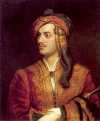 Messolonghi was a major stronghold of Greek insurgents in the Greek War of Independence. Its inhabitants successfully resisted a siege by forces of the Ottoman Empire in 1822 and 1823 and held out heroically against a second siege from 1825 to 1826, when the Ottomans captured the town. Facing starvation after a year of relentless attacks, the people of Messolonghi—approximately 10,500—finally decided to leave the beleaguered city on the night of April 10, 1826. What happened when they left? Discuss
Messolonghi was a major stronghold of Greek insurgents in the Greek War of Independence. Its inhabitants successfully resisted a siege by forces of the Ottoman Empire in 1822 and 1823 and held out heroically against a second siege from 1825 to 1826, when the Ottomans captured the town. Facing starvation after a year of relentless attacks, the people of Messolonghi—approximately 10,500—finally decided to leave the beleaguered city on the night of April 10, 1826. What happened when they left? Discuss
Source: The Free Dictionary
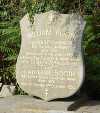 April 10 is the day on which William Booth (1829-1912), founder of the international religious and charitable movement known as The Salvation Army, was born in Nottingham, England. With the help of his wife, Catherine, he established the East London Revival Society, which soon became known as the Christian Mission and later the Salvation Army. Although Booth’s birthday is observed to varying degrees at Salvation Army outposts around the world, a major celebration was held on the organization’s centennial in 1965. Discuss
April 10 is the day on which William Booth (1829-1912), founder of the international religious and charitable movement known as The Salvation Army, was born in Nottingham, England. With the help of his wife, Catherine, he established the East London Revival Society, which soon became known as the Christian Mission and later the Salvation Army. Although Booth’s birthday is observed to varying degrees at Salvation Army outposts around the world, a major celebration was held on the organization’s centennial in 1965. Discuss
Source: The Free Dictionary
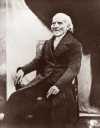 Hahnemann was a German physician who created the form of alternative medicine known as homeopathy. Unsatisfied with the state of medicine at the time, Hahnemann looked for an alternative. Struck by the similarity of the symptoms quinine produces in healthy individuals to those of the disorder it cures, he theorized that “like cures like” and that drugs which produce the same symptoms as certain diseases should be used in small doses to treat those diseases. Why did he discourage drinking coffee? Discuss
Hahnemann was a German physician who created the form of alternative medicine known as homeopathy. Unsatisfied with the state of medicine at the time, Hahnemann looked for an alternative. Struck by the similarity of the symptoms quinine produces in healthy individuals to those of the disorder it cures, he theorized that “like cures like” and that drugs which produce the same symptoms as certain diseases should be used in small doses to treat those diseases. Why did he discourage drinking coffee? Discuss
Source: The Free Dictionary
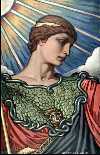 In Roman religion, Minerva was the goddess of wisdom and war, as well as of handicrafts and the arts. Probably of Etruscan origin, she was worshiped in various parts of ancient Rome, most notably with Jupiter and Juno in the great Capitoline temple. Her temple on the Aventine Hill was a meeting place for skilled artisans, actors, and writers. Minerva came to be identified with what Greek goddess? Discuss
In Roman religion, Minerva was the goddess of wisdom and war, as well as of handicrafts and the arts. Probably of Etruscan origin, she was worshiped in various parts of ancient Rome, most notably with Jupiter and Juno in the great Capitoline temple. Her temple on the Aventine Hill was a meeting place for skilled artisans, actors, and writers. Minerva came to be identified with what Greek goddess? Discuss
Source: The Free Dictionary
Definition: (noun) The use of unnecessarily wordy and indirect language.
Synonyms: ambage, periphrasis, evasion.
Usage: He is long-winded and prone to circumlocution in his public speeches.
Discuss
Source: The Free Dictionary
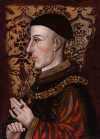 Henry was knighted by Richard II in 1399 and created prince of Wales when his father, Henry IV, usurped the throne the same year. Although his early recklessness was celebrated—and probably exaggerated—by Shakespeare, Henry became a great popular hero. He lifted England from the near anarchy of his father’s reign to civil order and a high spirit of nationalism. His main interest, however, was in gaining control of lands in France—lands that he sincerely believed to be his right. Did he succeed? Discuss
Henry was knighted by Richard II in 1399 and created prince of Wales when his father, Henry IV, usurped the throne the same year. Although his early recklessness was celebrated—and probably exaggerated—by Shakespeare, Henry became a great popular hero. He lifted England from the near anarchy of his father’s reign to civil order and a high spirit of nationalism. His main interest, however, was in gaining control of lands in France—lands that he sincerely believed to be his right. Did he succeed? Discuss
Source: The Free Dictionary